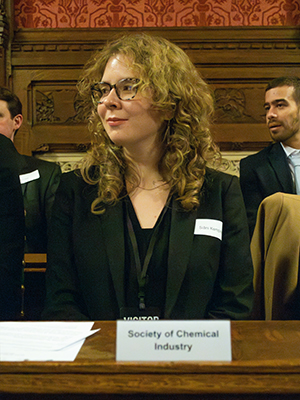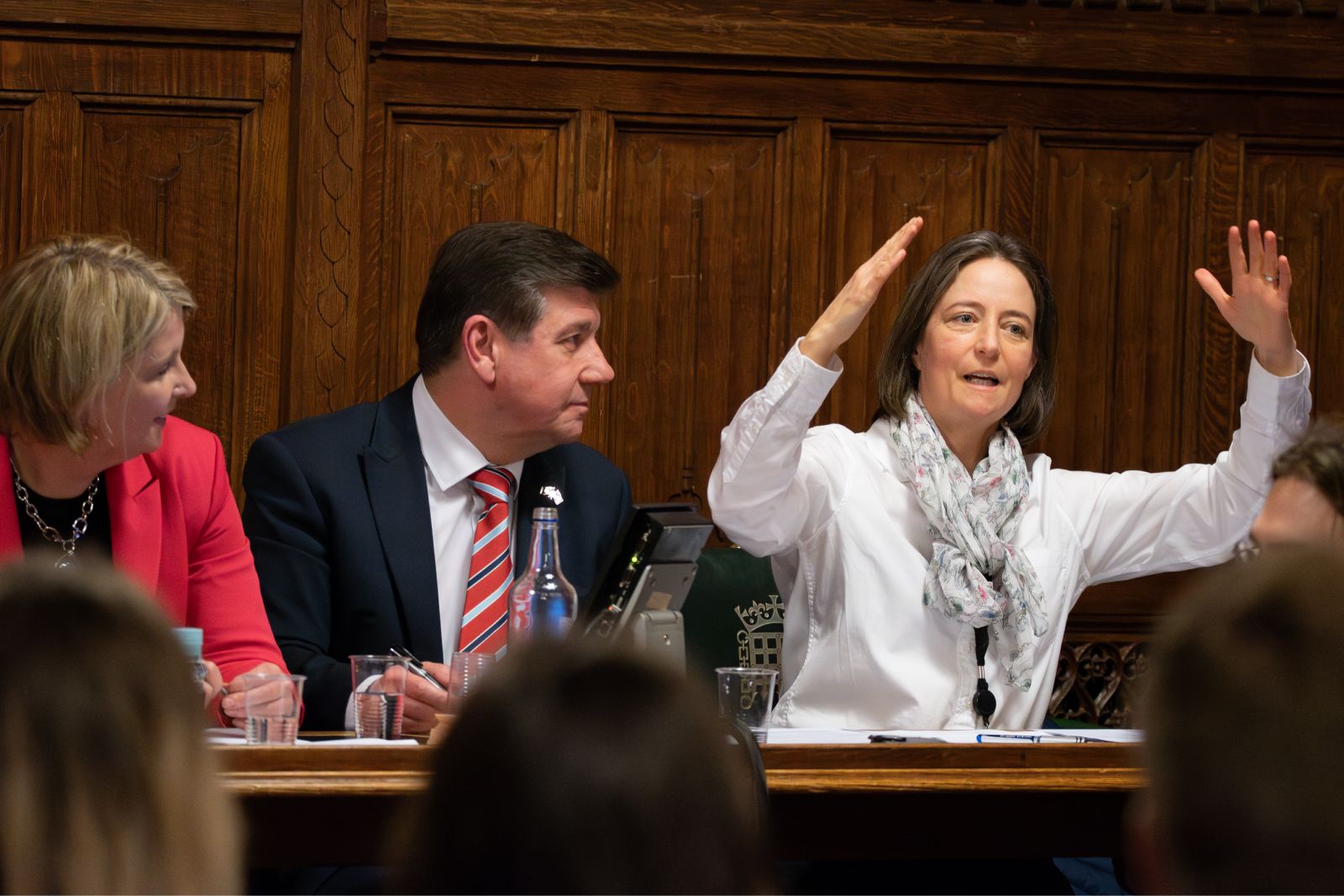Images courtesey of Royal Society of Biology
The annual Voice of the Future event was held in the House of Commons on 12 March, bringing together early-career scientists from various fields to pose questions to parliamentary figures.
It offers a platform for early-career researchers and professionals to engage with key advisors and politicians from the UK government, discussing pressing issues in science and policy.
Parliamentary figures present included Chi Onwurah MP, Katherine Fletcher MP, Stephen Metcalfe MP, Carol Monaghan MP, Viscount Stansgate Dr Stephen Benn, and Lord Paul Drayson.
SCI was represented by Alex Bentley (GSK), Emily Simpson (Evotec), Harikrishna Bachu (Evotec), Matt Batson (Givaudan), Matthew Smawfield (Cargill), Samuel Lowe (Unilever) and Siâni Kempster (Johnson Matthey).
Scientific education in the UK emerged as a central theme of the day, with Fletcher, Metcalfe and Monaghan – members of the Science, Innovation and Technology Select Committee – engaging in discussions on how the UK can develop, attract and retain STEM talent.
Monaghan, drawing on her experiences as a physics teacher, advocated for improvements across the board in STEM education by stressing the importance of ‘providing scientific training across schools from very early stages.’
Speaking on the efforts the Labour party would make to improve maths education if elected, Onwurah, who is shadow minister for science and technology, suggested that a curriculum review will offer a broad and enriching education for every child.

Left: Siâni Kempster (Johnson Matthey), representing SCI.
Continuing the discussion of a key topic raised by attendees, SCI representative Siâni Kempster asked; ‘The chemical sciences produce about 60,000 graduates per year and there is, according to some estimates, a total workforce of 140,000. It is clear that we have enough graduates but that they are choosing not to enter the chemical sciences. How would you suggest that the chemical industries can attract more of our highly trained graduates to enter the profession?’
Responding, Metcalfe emphasised the necessity of incentivising careers in the chemical industry within the vibrant employment market in the UK. He noted the importance of recognising and rewarding individuals who decide to pursue careers in the chemical industry, highlighting ‘the effect chemistry can have in solving the great challenges that we have’. On this topic, Onwurah noted the importance of providing a greater range of training courses as well as ensuring effective access to training. She highlighted the need for ‘a cross-government action plan to break down barriers for all people getting into STEM.’
Kempster later raised another crucial question, highlighting the challenges of scaling technology from research and development to commercial scale. She inquired about the mechanisms necessary for better supporting organisations with technology scale-up and improving current incentives for strategic sustainable projects in the UK.
Speaking on the significance of the industrial strategy in addressing these challenges, Drayson and Benn, members of the House of Lords Science and Technology Select Committee, agreed that lack of investment is at the heart of the challenge of scaling up to sustainable larger businesses.

MPs Katherine Fletcher, Stephen Metcalfe, and Carol Monaghan.
Picking up on the ‘Science and Tech is our Superpower’ campaign launched by the UK government on 11 March to encourage British investors to support growth-ready scale-ups, Drayson commented that it is vital that ‘the wealth created in the UK is reinvested back into the industry.’
Another central theme of the event was the diverse applications of emerging technologies across science and medicine. Discussions revolved around AI policies and their implications for patient safety within the NHS. Responding to a question addressing antimicrobial resistance, Fletcher underscored the importance of changing the regulatory environment to keep pace with the technology of personalised medicine.
Metcalfe, who co-chairs the All-Party Parliamentary Group on Artificial Intelligence, highlighted the scale of the opportunity that AI offers, while acknowledging the necessity for robust policy frameworks ensuring that all products undergo rigorous training, and the ethical responsibility of product creators. On this matter, Benn later added, ‘The implementation of AI offers opportunities to leverage the strength that the UK has to create future businesses able to use this technology.’
Reflecting on the overall event, Emily Simpson from Evotec remarked; ‘It provided insights into the interaction between the government and the scientific community.’ Alex Bentley from GSK added; ‘It was a great opportunity to learn more about how MPs consider science to inform policy making.’
